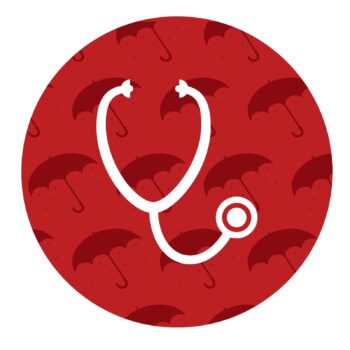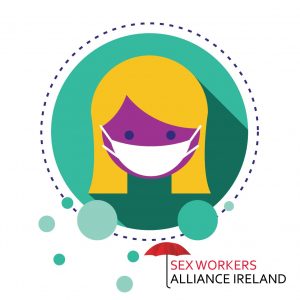
She continues “Many sex workers come from communities that already face high levels of marginalisation and social exclusion including women living in poverty, migrants and refugees, trans people and drug users. Sex workers who are the primary earners in their families, or who don’t have alternative means of support are at risk of being forced into more precarious and dangerous situations to survive.
Sex workers in Ireland are already reporting:
- Drastic loss of income
- Closure of workplaces
- Lack of funds to pay for basic needs, support family members and dependents
- Inability to access community health services which have shut down or decreased their activities
- Increased pressure to take risks while working in order to secure income
This pandemic is revealing, with extreme urgency, the ways in which sex workers are forced to operate on the margins, in precarious circumstances, without the protections enjoyed by other workers.
SWAI and ICRSE support efforts by governments to control transmissions of the virus. However, public health measures that do not consider the circumstances of the most marginalized groups put their overall success at risk. In providing emergency measures and relief, governments must ensure that they reach workers who are excluded from the formal economy.
As minimum governments must urgently provide:
- Immediate, appropriate and easy-to-access financial support for sex workers in crisis,
- Emergency housing for homeless sex workers
- A firewall between immigration authorities and health services
- Access to health care for all sex workers, irrespective of their immigration status
All measures related to sex work must be based on public health and human rights principles and be developed in consultation with sex workers and their organisations to limit their negative impact. This unprecedented crisis calls for meaningful collaboration between all sectors of society, including those most marginalized. Only by involving sex workers do governments stand a chance to limit the pandemic and eventually end it.
To mitigate the harm of the pandemic on sex workers we have set up a hardship crowdfund. Sex work is work and sex workers like many precarious workers have been affected by Covid-19. This money will go directly into the hands of sex workers through individual emergency payments. Here is the link: https://swai-hardship-fund.causevox.com/.
Sex workers are not the problem, we are part of the solution”
#DecrimforSafety #SupportSafeSexWork

 Earlier this week we sent the following email to the caretaker Taoiseach Leo Varadkar and caretaker Minister for Health Simon Harris as well as other state departments. Sex workers who are experiencing financial difficulties, much like other precarious workers during these times, are being affected by Covid-19. We must be included in any plans for vulnerable populations and we cannot remain invisible to the state during this time.
Earlier this week we sent the following email to the caretaker Taoiseach Leo Varadkar and caretaker Minister for Health Simon Harris as well as other state departments. Sex workers who are experiencing financial difficulties, much like other precarious workers during these times, are being affected by Covid-19. We must be included in any plans for vulnerable populations and we cannot remain invisible to the state during this time.